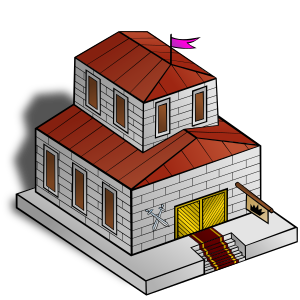-
Clone the repo
git clone https://github.com/mchekin/rpg.git game -
Navigate to the project folder
cd game -
Create .env file from the .env.example file
cp .env.example .envOn Windows:
copy .env.example .env -
Run composer install to import the dependencies and enable auto-loading
composer install -
Generate Laravel Application key
php artisan key:generate -
Create SQLite database file
touch database/database.sqliteOn Windows:
copy NUL database\database.sqlite -
Run Laravel database migrations and seeds
php artisan migrate --seed -
Compile frontend assets
npm install & npm run dev -
Create a symbolic link from "public/storage" to "storage/app/public"
php artisan storage:link -
Run PHP build-in development server on the host machine
php artisan serve -
Navigate to http://localhost:8000/
-
Enable Laravel Task Scheduling
-
Open the cron tab file
crontab -e -
Add the following line and save
* * * * * php <path-to-project>/artisan schedule:run >> /dev/null 2>&1
On Windows:
Open the Terminal as Administrator, navigate to the project's root folder and run:
schtasks /create /sc minute /mo 1 /tn "RPG SCHEDULER" /tr %cd%\scheduler.batTo disable the annoying command-line pop-up each time the task runs:
- Open Windows "Run" dialog by pressing "Windows Key + r"
- Enter type "Taskschd.msc" and press Enter. This will open the "Task Scheduler".
- In Task Scheduler's "Active Tasks" section find the "RPG SCHEDULER" task and double-click it.
- In the left "Actions" panel click "Properties". This will open "Properties" pop-up.
- In the pop-up select the "Run whether user is logged in or not" and press Enter. You maybe asked for your Windows user's password to complete the process.
To remove the scheduled task you can use
schtasks /delete /tn "RPG SCHEDULER" /f -
Voyager has been integrated into the project as an Admin Dashboard.
To use the Admin:
-
Register a user in the application (You can skip this step if you already have a user).
-
Give the user the admin role by running:
php artisan voyager:admin <user email> -
Navigate to http://localhost:8000/admin.
-
Log in with the user credentials (If not logged in automatically).
Further information about using Voyager can be found on its official website.
